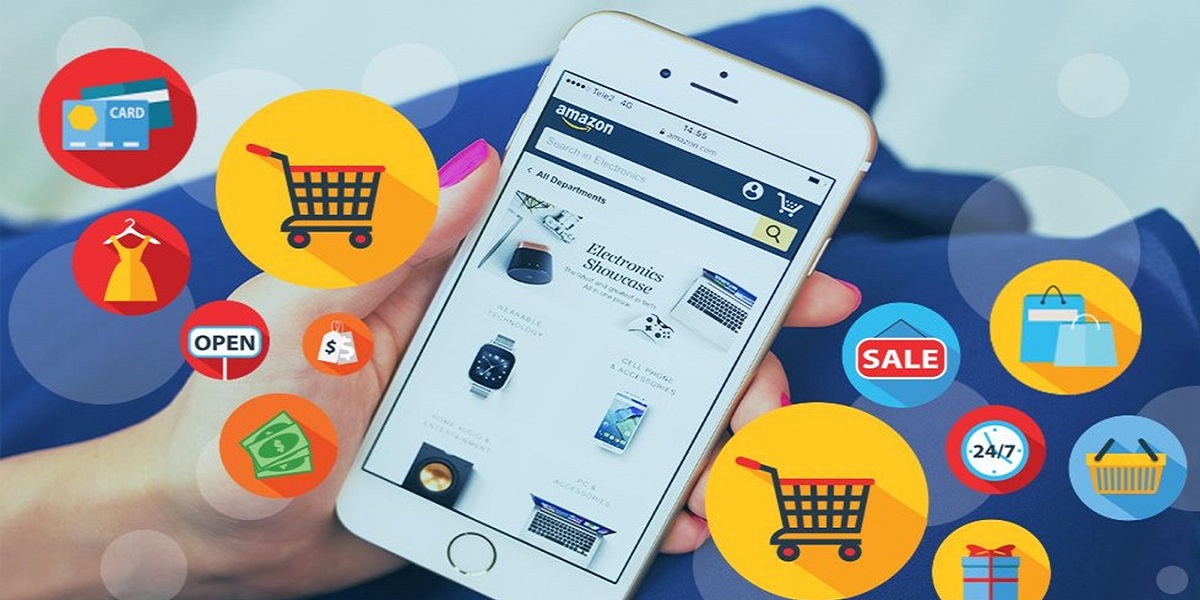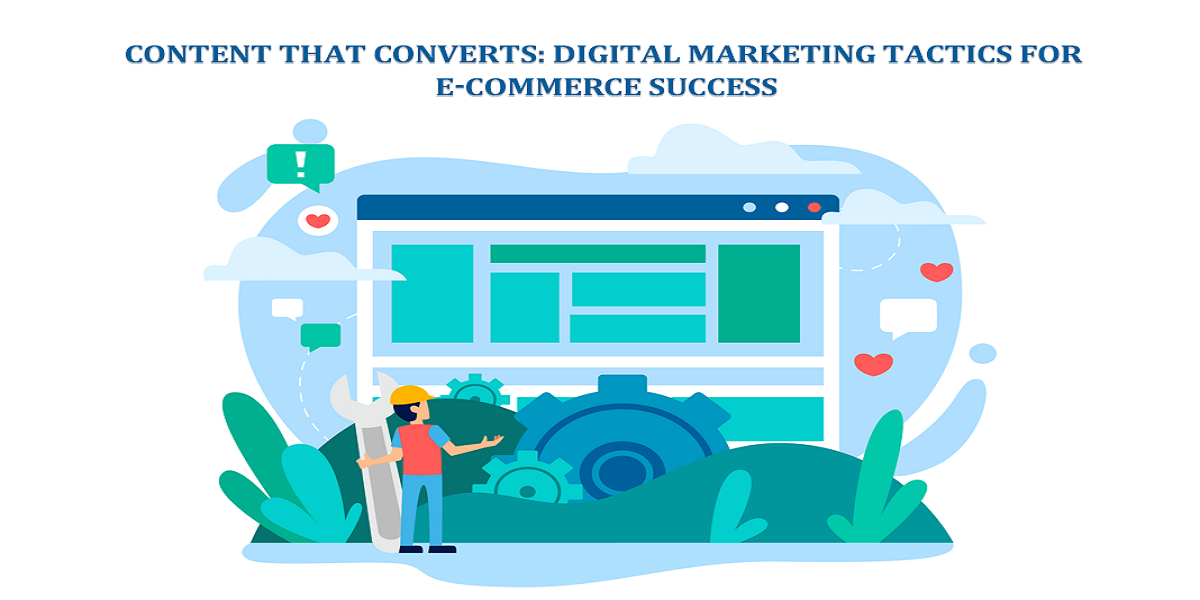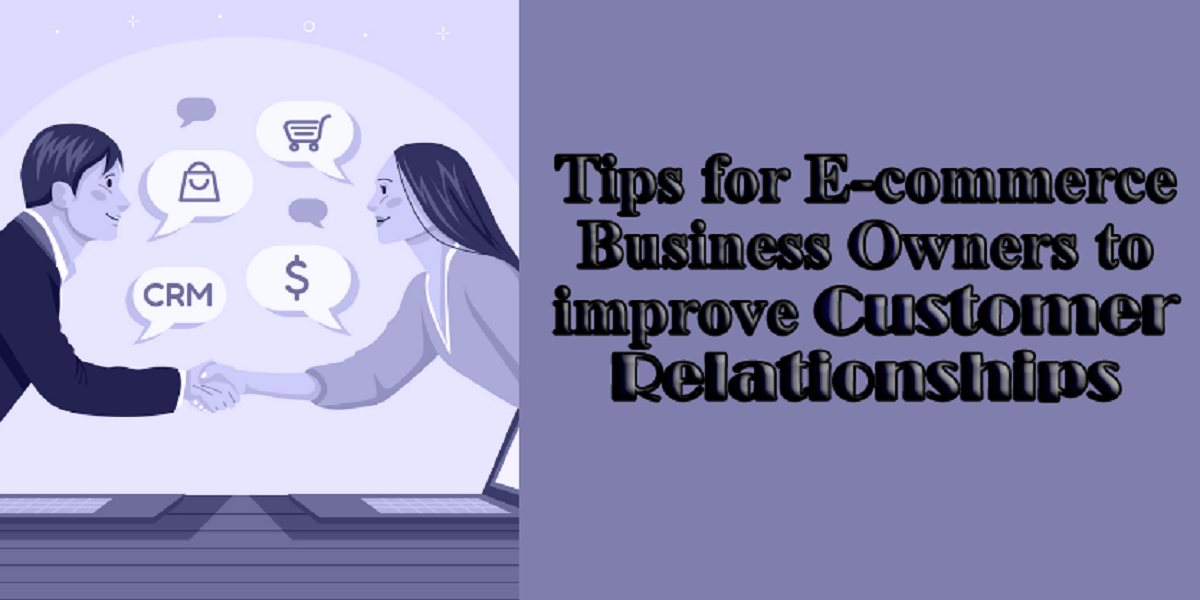
The Strategic Significance of Mobile apps for elevating E-commerce Excellence
- By James Wilson
- 06-03-2024
- E-commerce
The eCommerce landscape is expanding at such a rapid pace these days that relying on a website alone is not enough to help your online store reach its full potential. Instead, you need to reach customers at any time, from any place, or on any device. It means you also need to build a mobile app, establish your presence on social media, or even slide into their daily lives through smart gadgets. That’s what an omnichannel eCommerce strategy is all about.
A key ingredient of omnichannel eCommerce strategy is to build a mobile app. It’s something you can’t skip because mobile phones have become an integral part of our lives. 97% of adults in the US own a mobile phone, out of which 81% of the population has a smartphone. By not building a mobile app, you’re missing out on the chance to turn these potential buyers into loyal customers.
As a business owner, it’s time you wake up to this reality and hire an eCommerce app development agency to build a mobile app for your eCommerce business. To give you a little nudge in the right direction, we’ll discuss in this blog how building an app can enhance your online store’s visibility, lead to more revenue. Read on!
How can Mobile App Development Drive the Growth of Your eCommerce Business?
Growing and retaining the customer base, increasing sales, enhancing brand presence, and maximizing profits is on the top of the agenda of every business. You’re no exception. But the more important question is: how to achieve these goals?
The answer is simple: Meet customers where they are, offer high-quality products at a reasonable price, and use various strategies to ensure they keep coming back.
A mobile app would play a critical role in driving the growth of your eCommerce business. Let’s explore in detail how:
1. Tapping Customers Who Prefer an App Over Website for Online Shopping
You can understand the significance of mobile apps in eCommerce from the fact that 85% of customers would rather shop from an app instead of a website. It’s because apps offer greater convenience, optimized user experience, and more speed (mobile apps are 1.5x faster than websites on mobile devices) even if your website is fast sand responsive.
By having a mobile app for your eCommerce store, you can convert these customers into loyal buyers by offering an optimized user experience. Also, you can reach a wider audience (even those who wouldn’t buy because they prefer shopping from an app), leading to more revenue and conversions.
2. Improving Conversions by Reaching Customers at the Right Time
Nothing is more critical than increasing the conversion rates of your eCommerce business. It’s because more conversions mean more revenue, which is a key indicator in deciding whether your business is a success or not.
Now, if we compare mobile app conversion rates to mobile website conversion rates, the app turns out to be a clear winner. Customers using a mobile app for shopping view 286% more products and add items to their shopping cart at 85% higher rate. Do you know why?
It’s because mobile apps help you reach customers at the right time. For example, you can send a push notification to customers using your eCommerce app if the product they searched a few days back is in stock again. Also, if someone is searching for a pair of shoes while commuting to the office, you can send them a personalized special deal to help them complete the purchase. Similarly, you can take advantage of the geo-tracking feature on the eCommerce app to send promotions whenever they cross your brick-and-mortar retail store. It would increase the likelihood of sales.
Another way mobile apps boost conversion rates by around 130% is by suggesting complementary products. Amazon does this efficiently by suggesting complementary items when you add a product to the cart. For example, when you add a pair of shoes, the Amazon website also suggests complementary items like a pair of shocks or a shoe shiner. This way, you sell more products and your conversion rates go up.
3. Creating a More Personalized Shopping Experience for Your Customers
Personalization is the key to the success of an eCommerce business. Chances of a customer buying your products are more when you customize the website content and product recommendations by their preferences. Also, 63% of customers want a personalized online shopping experience. That’s why many businesses segment customers by demographics and customize their content based on individual customer preferences.
An eCommerce mobile app uses location, browsing, and purchase history to suggest more accurate and personalized products through push notifications. Also, unlike websites where customers need to login to receive a notification, similar is not the case with mobile apps. They can check these notifications anytime and visit your mobile app. This strategy increases repeat purchases, builds loyalty, and increases conversion rates.
4. Reducing Cart Abandonment Rates by Streamlining Checkout
Shopping cart abandonments are a major issue among businesses these days. They affect KPIs as an abandoned cart means a missed chance to make a sale, which frustrates you.
An eCommerce app can reduce cart abandonment much better than websites. It’s because apps streamline checkouts by minimizing checkout steps and saving customer preferences. Also, they allow users to pay from multiple options (Google Pay, Apple Pay, Amazon Pay, Net Banking, Credit/Debit Cards, Stripe, PayPal). All these practices increase customer satisfaction, reduce cart abandonments, and improve the conversion rate.
5. Increasing Revenue with Enhanced Customer Service
The end goal for every eCommerce business, whether it’s yours or of someone else, is to increase revenue. The way you treat your customers significantly impacts whether your revenue would increase or not. Even the stats indicate the same as 73% of customers prefer spending more money and time shopping with an eCommerce business after receiving exceptional customer service.
An eCommerce app can help you offer exceptional service to your customers with features like in-app chat assistance, order tracking, and smart product recommendations. It boosts customer satisfaction, leading them to spend more money and boost your revenue.
6. Marketing Advantages
Having an eCommerce app also has several significant marketing advantages, such as:
- You can reach your target audience directly with a mobile app, reducing costs on marketing campaigns.
- Since an eCommerce mobile app is usually integrated with social media platforms, you can encourage customers to spread the word about your brand on their social media accounts. Remember while you can launch paid ad campaigns, nothing matches a positive word-of-mouth from people who had first-hand experience with your product.
7. Increasing Sales by Interacting with Customers Frequently
You have greater chances of converting first-time buyers into loyal customers if your interaction with them doesn’t end with the purchase. Frequently interacting with your customers and encouraging them to revisit your website to check out new products is what fosters a deeper connection. It keeps your brand fresh in their mind and they feel encouraged to check out your website when you launch a new product.
An eCommerce mobile app can help you foster this interaction through push notifications. With this unique feature, you can conduct effective brand marketing to constantly engage customers and ensure they never forget about you. Push notifications are also highly efficient with around 90% open rates. Moreover, 70% of users find them useful.
If leveraged properly, it can be a powerful and cost-effective tool to engage your customers – much better than running costly ad campaigns.
8. Offering a Competitive Edge
In today’s interconnected and hypercompetitive eCommerce landscape, you’re already losing if you haven’t built a mobile app yet. It’s because customers would eventually abandon your eCommerce website for competitors as they have more streamlined navigation and most shoppers prefer a mobile app over a website for online shopping.
In short, an app is what can easily sway your customers from your website to competitors and vice versa. It can put you ahead of competitors who are still late in adopting the mobile commerce landscape (building a mobile app for their business).
9. Swaying Customers with a Great User Experience
In a time when attention spans are low and eCommerce companies are fighting for every second of customer attention, great user experience can be a real differentiator. It can set you apart from others and help you carve a special niche for yourself.
Here’s how eCommerce mobile apps can offer a great user experience:
- Customers are already familiar with how mobile apps work. Most of them know they can quickly discover their favorite products. You only need immersive visuals and smooth navigation to engage and nudge them in the right direction.
- Customers frequently use mobile phones to connect with each other. By building an eCommerce mobile app and integrating it with social media platforms, you can empower them to share their opinion about your product. It breeds engagement, fosters loyalty, and increases customer satisfaction.
- eCommerce mobile apps include features like personalized discounts, push notifications, and multiple payment options that can significantly enhance the customer experience.
- Customers prefer reviewing products before buying them, and mobile phones are a convenient option because of their portability. You can take your phone anywhere with you, which makes accessing and comparing products easier.
What Features Your Ecommerce Mobile App Must Have?
You learned how an eCommerce mobile app is crucial for your online store. Now, it’s time to learn what features you should include to ensure your customers have the best shopping experience and you get to maximize your conversions.
Let’s dive into what critical features your eCommerce mobile app must have:
1. Easy Registration
Not all customers want to go through an elaborative registration process to buy a product. Some even prefer they don’t have to register at all. So, keep the registration process as simple as possible.
You can do this by:
- Optimizing fields to only ask for the essential information from customers. You can use progressive profiling in which you only ask for essential information first, prompting them to fill in the rest of the details later as they complete certain actions within the app.
- Offering various registration options, such as Google, social media login, Facebook login, and email/password.
- Using inline validation to help customers easily spot errors in registration and a progress bar to showcase they’re heading in the right direction.
- Offering a guest checkout option to also encourage people who don’t want to register to buy products within your app.
2. Secure Payment Methods
Customers also hesitate to buy products if they feel that their payment details are not safe with the app. Hence, you must offer secure payment options within your app to inspire confidence and increase the likelihood of purchases.
To secure payment gateways on your eCommerce mobile app:
- Use PCI-DSS protocols within your app to ensure it processes, stores, and transmits credit card details securely to prevent frauds.
- Use two-factor authentication to add an extra layer of security.
- Make it mandatory for your customers to enter CVV/CVC information when they check out. It ensures the customer has the card with them when they’re entering the payment detail.
- Monitor all the transactions for suspicious activities to prevent threats before happening.
Some apps are even using the blockchain technology to secure payment processing these days.
3. Comprehensive Product Catalog
A rich, well-organized product catalog is crucial in an eCommerce app. It lets customers find the product they’re looking for, ensuring no one leaves unsatisfied. Also, users feel more confident in a product when it’s well-organized and has a user-friendly interface.
You can make your product catalog comprehensive by using detailed product descriptions, high-quality images and videos, and keeping prices clear. You must also offer search filters to ensure they find their desired product as soon as possible. It’s essential because no one wants to scroll an app endlessly.
4. A Streamlined Shopping Cart and Checkout Process
Both the shopping cart and checkout process plays a critical role in an eCommerce app. If the shopping cart offers relevant options and the checkout process is simple, customers easily breeze through and buy the desired product. Otherwise, they abandon the cart mid-way. That’s why ensure that your shopping cart is as simple as possible.
You can streamline the shopping cart and the checkout process by eliminating unnecessary steps so that there’s not much hassle. You must also offer options for adding, updating, or removing items in the shopping cart.
Recent blog

Content that Converts: Digital Marketing Tactics for E-Commerce Success
E-commerce | 02-05-2024.png)
Future-proof Your Store: Exploring Emerging Technologies in E-commerce
E-commerce | 01-04-2024




